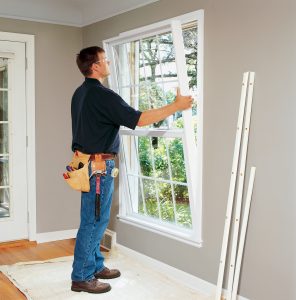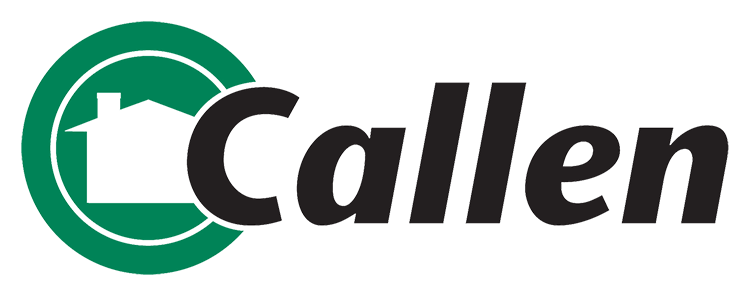 Installing high performance windows in a home not only yields immediate benefits, such as a comfortable indoor air temperature and energy savings, but it also provides lasting, long-term benefits, such as environmental sustainability.
Installing high performance windows in a home not only yields immediate benefits, such as a comfortable indoor air temperature and energy savings, but it also provides lasting, long-term benefits, such as environmental sustainability.
“It’s important to understand the impact the materials we choose to incorporate into our homes have on us, our home, and the environment,” said Lance Dahl, CR, Senior Sales Representative – Exterior Products with Callen. “When homeowners opt for environmentally friendly window materials, such as fiberglass, it equates to less dependence on natural gas-fired power plants, minimal UV radiation in homes, a higher demand for non-depleting resources, and less waste in landfills, of which future homebuyers will take note.”
One of the first aspects noticed after installing high performance windows is a more consistent and comfortable indoor air temperature. “Often times, old windows are drafty, which has a negative impact on your home’s thermostat and consequently, your energy bills,” said Lance. “Conversely, new windows are typically designed to be more energy efficient. More specifically, fiberglass offers impeccable insulation properties.” In other words, energy efficient fiberglass windows are specially designed to keep heat inside the home and cold air out during cold temperature months as well as cool air inside the home and the warm air out during summer. “If you’re looking for a concrete way to measure the energy efficiency of your new windows, simply refer to your home’s energy bills, where your savings will be reflected. Moreover, lower energy consumption means less demand for natural gas-fired power plants,” Lance said.
High performance windows are usually equipped with a Low-E coating that protects homes from ultraviolet rays, which are notorious for fading flooring and other furnishings. It is also likely a home is quieter after new high-performance windows have been installed. “Thanks to better soundproofing technology, new windows are often designed to significantly lessen noise pollution, particularly when double or triple-pane windows are installed,” said Lance.
In terms of composition, fiberglass is primarily made of glass, not surprisingly, which comes from sand. According to the Fenestration and Glazing Industry Alliance (FGIA), sand is an abundant, natural, non-depleting resource, making fiberglass a highly-sustainable option. Plus, fiberglass doesn’t require extra materials for reinforcement, meaning the materials weigh less, thus minimizing pollution and cost associated with transportation.
Fiberglass windows are known for their exceptional strength, durability, and long-life expectancy. “In fact, fiberglass high performance windows are eight times stronger than vinyl and can last upwards of 50 years, with many types offering a lifetime warranty,” he said. “Furthermore, fiberglass expands 87% less than vinyl, meaning they are able to withstand extreme temperatures without warping.” Fiberglass is also resistant to seal failures, leaks, and stress cracks. Plus, the enhanced durability and longevity of fiberglass windows means less waste in landfills.
“Installing new high performance environmentally sustainable windows is also beneficial when it comes time to sell your home,” said Lance. “It significantly enhances a home’s curb appeal and yields one of the highest return on investment (ROI) rates when compared to other major home improvement projects.” In fact, certified energy-efficient windows are considered either an essential or desirable home feature among more than 90% of all home buyers in the National Association of Home Builders (NAHB) study, according to homelight.com. Additionally, an estimated ROI when installing new fiberglass windows ranges between 70-74%, according to Remodeling Magazine. “In other words, if you’re considering selling your home in the near future, installing new energy efficient windows will benefit you, your home, the environment, and future home buyers alike,” Lance said.
For more information or to arrange an initial Design Center consultation, call Callen at 414-529-5509 or complete our online form.


